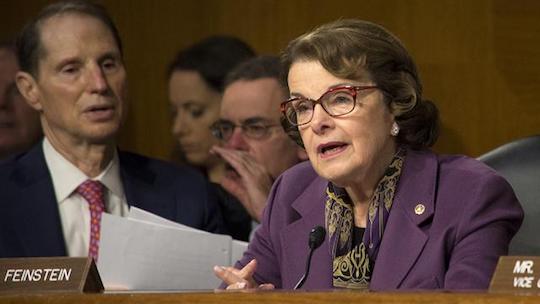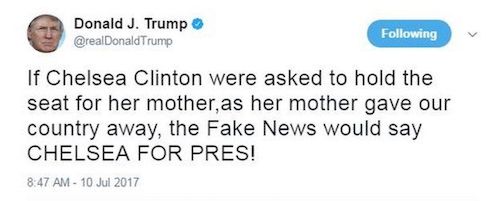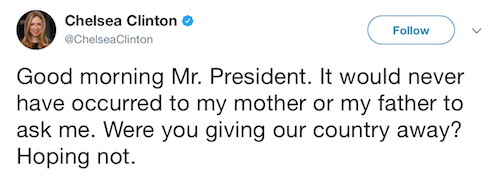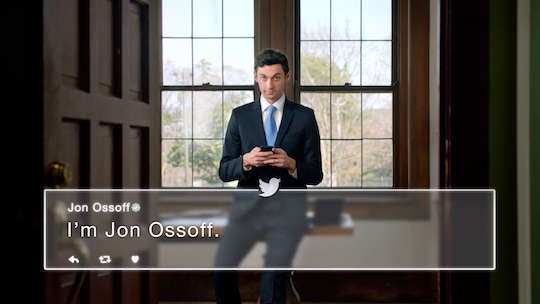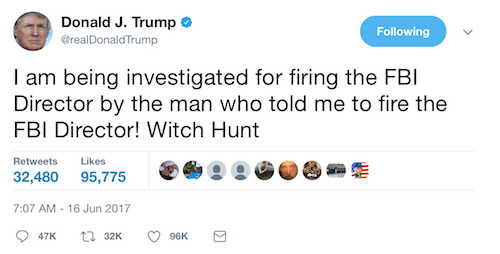The Senate Intelligence Committee held hearings today on Russia’s use of social media during the 2016 election, questioning representatives of Google, Facebook, and Twitter. These panels come on the heels of yesterday’s Judiciary Committee meeting on the same subject, where Sen. Diane Feinstein (D-CA) was apparently frustrated by the companies’ failure to grasp the extent of the problem. Or she was mad they didn’t send their CEOs. Either way, the senator spoke sharply to the tech company representatives. I quote The Hill:
What we’re talking about is a cataclysmic change. What we’re talking about is the beginning of cyber warfare. What we’re talking about is a major foreign power with the sophistication and ability to involve themselves in a presidential election and sow conflict and discontent all over this country…You have a huge problem on your hands. You have created these platforms and now they are being misused. And you have to be the ones to do something about it, or we will.
Um…the federal government is going to do something about social media? Surely Senator Feinstein was not talking about censorship. Perhaps she only meant the government would do something about which foreign entities can post material on American websites. You know, like Americans can see tweets from friendly countries but not from Russia. Or maybe there could be some kind of system where we only see news the government has certified as real. Whatever it is, I’m sure the feds can find some way to prevent people from using social media to “sow conflict and discontent.”
Three problems leap to mind, here. The first is that we still don’t know to what extent Russia influenced the last election, and what portion of that influence can be attributed to social media. You can call phony news stories about Hillary Clinton “the beginning of cyber warfare,” but that doesn’t describe what happened; that describes how you intend to respond. So the first problem is that we’re starting from the assumption that Russia or some other hostile outside force is responsible for the bad consequences of social media, when we’re not actually certain they are.
The second problem is that Feinstein is talking about this presumed foreign meddling as though it were a war. The thing about war is that it justifies a lot of responses that are otherwise unthinkable. Normally, when the American public shows signs of “conflict and discontent,” we do not want the government to do something about it. But when conflict and discontent are the product of malevolent foreign influence, and we’re at war, then maybe the feds should step in to regulate a formerly free exchange of ideas. This country has already shown a willingness, in history and in recent years, to violate basic constitutional principles in the name of war. So the second problem is that the senator is militarizing this issue and, in the same stroke, suggesting that the government might regulate speech.
The third problem is that Senator Feinstein is 84 years old. I bet she’s a canny old lady, but I also bet she refers to each message she receives as “a Facebook.” When she tells executives from these companies that “I don’t think you get it,” she introduces the possibility that in fact she is the one who does not understand how these platforms work. This problem is potentially endemic to the senate. The average age of a US senator is 61 years old. Of all the 61 year-olds you know, how many have a keen grasp of social media and its relevance to American discourse?
Feinstein is facing a primary challenge next year, and it’s entirely possible she was only grandstanding. It doesn’t seem likely that the same Congress that couldn’t repeal Obamacare will agree on a comprehensive plan to regulate social media. Still, these remarks are unsettling. “Hostile agents have infiltrated our discourse to sow division” is a classic rationale for censorship. Show me a government that regulates speech, and I’ll show you one that’s protecting its people from the corrosive influence of foreigners.

